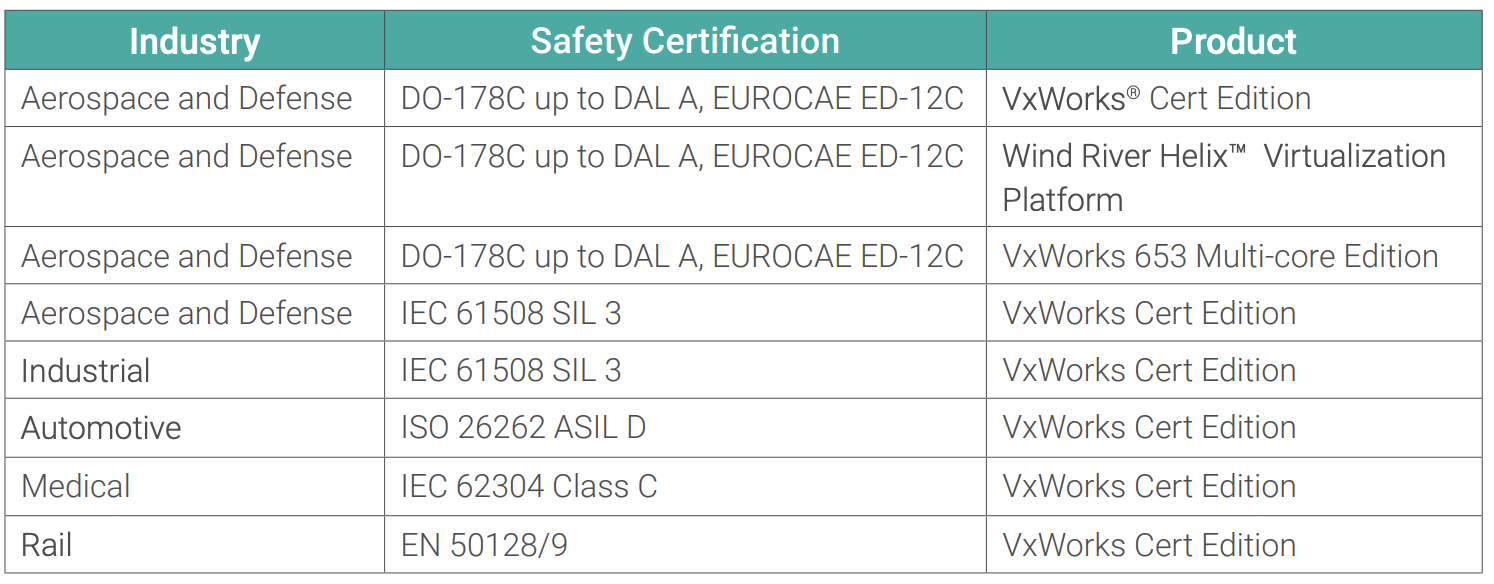Wind River Studio Wind River Studio
Wind River® has a range of commercial off-the-shelf (COTS) solutions that come with safety certification evidence, helping technology suppliers meet certification standards and provide evidence faster and more cost-effectively.
FEATURES AND BENEFITS
- Wind River has commercial off-the-shelf (COTS) products that come with safety certification evidence, making it faster and more cost-effective for technology suppliers to meet certification standards and provide evidence. • Wind River COTS certification is specific to the boards required for the project, and Wind River has many of the most popular architectures and boards already certified. Wind River offers a proven path to certification.
- If the COTS evidence package is not available, Wind River Professional Services can deliver bespoke safety certification, leaving critical resources available to innovate differentiating features more quickly.
- Evidence packages include fully indexed and hyperlinked content for rapid traceability and analysis. The requirements, design, source and binary code, and test case phases are easily navigated using a browser to facilitate certification.
